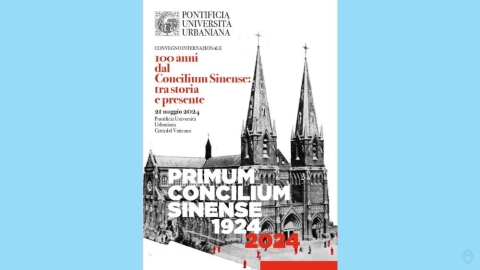In Poland, the Birth Rate Is at Its Lowest

The decline in the birth rate has reached an unprecedented record in Poland, which has become one of the states of the European Union (EU) where the fertility rate is at its lowest. It is a further sign of the secularization of Polish society which goes hand in hand with the notable loss of influence of the Catholic Church in the country.
The Polish episcopate must tell itself that one bit of bad news can hide another. After the victory of the progressive coalition led by Donald Tusk, the latest birth figures have just been published, and they are enough to make one’s head spin.
Between September 2022 and September 2023, 280,000 births were registered with the Civil Registry, or 34,000 fewer than the previous year over the same period, which constitutes the lowest figure ever recorded. At the same time, the gap with the death curve has widened considerably, having, in fact, stood at 414,100 over the past year.
This is the second year in a row that Poland has experienced a historic drop in the number of births, illustrating the demographic crisis that has hit one of the fastest aging countries in the EU.
And for good reason: the fertility index was 1.33 children per woman in 2021 (the most recent data has not yet been published). The generation renewal threshold is at 2.1. Among the EU States, only Malta, Spain and Italy are doing worse.
Questioned on TVN24, economist Rafal Mundry evokes a real “collapse” whose causes, according to him, are multiple. Among them are the war in Ukraine, a change in behavior since the Covid-19 pandemic, and the drop in the number of women of childbearing age.
A survey earlier this year showed that only 32% of Polish women aged 18 to 45 say they intend to have children. It is a fairly low figure when compared to the housing shortage that the country is experiencing. Almost half of Poles aged 25 to 34 still live with their parents.
It is a demographic decline that the conservative national Law and Justice Party (PiS) failed to halt during its eight years in power, even though it had made the increase in the birth rate one of its main objectives by establishing a solid family support policy.
The progressives who have just won success in the last legislative elections have other ideas to stimulate births: allowing public financing of in vitro fertilization, providing women with free prenatal diagnosis, and liberalizing abortion. But it is difficult to see how the legalization of child murder could cause the birth rate to climb.
The aging of Poland illustrates the great secularization movement of a nation once entirely Catholic, and the loss of influence of the local church, whose image continues to be tarnished by the media.
(Source : Notes from Poland – FSSPX.Actualités)
Illustration : Photo 250627360 © Artmim | Dreamstime.com





